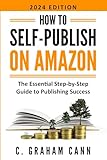The Writer's First Step
One of the commonest questions asked by young writers is: "What shall I write about?"

One editor has adopted a convenient formula in answer. He lays, "If I knew, I would write about it myself." The logic of the answer is so evident that it usually makes evident the absurdity of the question.
But there is one answer that, though general, may be helpful. It may be said that the young writers should choose a specialty. A man's own hobby is usually his best subject; but If he hasn't a hobby, it is not impossible to make one. It is surprising how much can be said upon even an unpromising topic. A charming essay from one of the English magazines or reviews was made up on the basis of a single visiting card.
The article began by describing the writer as compelled to make a railway journey with nothing to do, nothing to read, and no one with whom he could talk. A search of his pockets produced a simple visiting card, containing three names. The writer, from his knowledge of English language and history, built up upon the three names a most entertaining essay.
Of course, few writers could do as much "out of their own heads"; but books are cheap and some libraries are free, so that study will supply more material than can be used. An enormous amount of published matter is of this special class. It represents the writing up of a chosen subject about which the author knew at the start little more than his readers.
Bear in mind the subjects that excite your curiosity, and from time to time collect material bearing upon them. Before long, you will find that more grist comes to the mill than you can grind.
Take a dictionary or an encyclopaedia, or even a Sunday newspaper. Select whatever attracts you and begin to inquire about it. Here, under A, is Abbey, Almanac, Abbreviations, Admiral, Agrarian laws, Alderman, Aztecs, Asylums. Anything you please! Whatever one you begin to study will either prove a good subject, or will soon shunt you off upon a sidetrack leading to something better.
If you are poetically inclined, the study about Almanacs will soon set you to star-gazing and speculations upon the infinite; if you are of a scientific turn, the Almanacs will appeal to you on another side; if you are an antiquary, their history will demand attention; if you are a novelist, you may fail to care either for Almanacs or their makers.
But, in any event, the beginning of writing is made when you seek to acquire something to say.
Writing, like drawing, is a method of expression, and the first requisite in each art is something to express.
Suppose a young man or woman should wish to learn to act, and should say, "I believe I could act, but I haven't anything to act," it would absurdly parallel the plight of the young writer who asks, "What shall I write about?"
Find something to write about. Write the story of Captain John Smith and Pocahontas; the story of Goody-two-shoes ; the Battle of Waterloo—anything for practice! But don't try to sell this practice work, for fear of wasting stamps.
If you don't know of any subject upon which you are informed, select one about which nobody knows much of anything, and try to acquire knowledge about it. "How did the Romans clean their streets?" "When was starch invented?" "What dogs were preferred by the Greeks?" "How many persons are employed in the Bank of England?" "How were Ancient Galleys Warmed?" "Diseases of Elephants." Anything and everything will furnish subjects for investigation; research will give knowledge, knowledge will seek utterance, and utterance is the raw material of literature.
If you have not access to books or libraries, write about subjects that require only thought: "A Cold in the Head," "Occupations for Rainy Days," "Discomforts of Modern Dress," "Personal Jewelry"—only choose something, and then keep it in mind until you can say something about it.
As to fiction, it is, of course, simply making-believe elaborated. How often you hear your friends say, "If I were rich as Croesus I would------" and then begins the plot. Or, "If Iwere in love with a rich girl, I believe the best way to win her------" whereupon follows the novel. It is only in these unconscious moments that the imagination works freely, and this state of mind is that of the novelist. Alnaschar, with his basket of glass-ware, was simply a romancer who had not found his calling.
The upshot is this: You will never write anything until you have chosen something to write about. Almost any subject will do, for it will at worst lead to another, or clear the way for it. When the subject is chosen, study about it until you are a specialist on that matter, compared with the reading public. Then decide what you wish to say about it, and write that out plainly. Say no more than you have to say, even if you are compelled to make a paragraph where you hoped to create a book.
Treat your editors as a famous chess-player advised players to treat their adversaries: Give them credit for knowing what you know, and possibly a little more.
Read These Next
How to Create Digital Publicity - A Guide for New Authors
Digital publicity matters for all authors these days, not just the self-published sorts. Conventional publishers are often very weak at addressing these things in a timely way - which means you have to do it.
Book Pricing Strategies
Book publishers need to consider the market, their costs, and the perceived value of the book before arriving at a retail price for any title.
ISBN Frequently Asked Questions
For many first-time publishers and self-published authors, getting an ISBN and barcode on their books seems like an unimportant formality. It is, however, a vitally important part of your book publishing strategy that shouldn't be neglected.







 Self-Publishing for Dummies (For Dummies: Learning Made Easy)
Self-Publishing for Dummies (For Dummies: Learning Made Easy) Self Publishing To Amazon KDP In 2024 - A Beginners Guide To Selling E-books, Audiobooks & Paperbacks On Amazon, Audible & Beyond
Self Publishing To Amazon KDP In 2024 - A Beginners Guide To Selling E-books, Audiobooks & Paperbacks On Amazon, Audible & Beyond Write. Publish. Repeat. (The No-Luck-Required Guide to Self-Publishing Success)
Write. Publish. Repeat. (The No-Luck-Required Guide to Self-Publishing Success) Self Publishing To Amazon KDP In 2023 - A Beginners Guide To Selling E-books, Audiobooks & Paperbacks On Amazon, Audible & Beyond
Self Publishing To Amazon KDP In 2023 - A Beginners Guide To Selling E-books, Audiobooks & Paperbacks On Amazon, Audible & Beyond Self-Publishing: The Secret Guide To Becoming A Best Seller (Self Publishing Disruption Book 2)
Self-Publishing: The Secret Guide To Becoming A Best Seller (Self Publishing Disruption Book 2) How to Self-Publish Your Book: A Complete Guide to Writing, Editing, Marketing & Selling Your Own Book
How to Self-Publish Your Book: A Complete Guide to Writing, Editing, Marketing & Selling Your Own Book How to Self-Publish on Amazon: The Essential Step-by-Step Guide to Publishing Success
How to Self-Publish on Amazon: The Essential Step-by-Step Guide to Publishing Success Self-Publisher's Legal Handbook: Updated Guide to Protecting Your Rights and Wallet
Self-Publisher's Legal Handbook: Updated Guide to Protecting Your Rights and Wallet Self-Publishing Simplified: How to Publish a Book on Amazon KDP for Beginners
Self-Publishing Simplified: How to Publish a Book on Amazon KDP for Beginners AMAZON KINDLE DIRECT PUBLISHING COMPLETE GUIDE: Account Opening, Formatting, Cover Design, Publishing, Promotion/Marketing, Get US Payoneer Bank Account to Receive Your Royalties
AMAZON KINDLE DIRECT PUBLISHING COMPLETE GUIDE: Account Opening, Formatting, Cover Design, Publishing, Promotion/Marketing, Get US Payoneer Bank Account to Receive Your Royalties